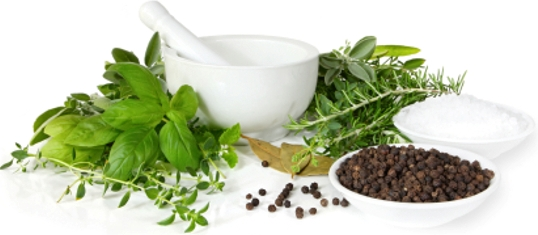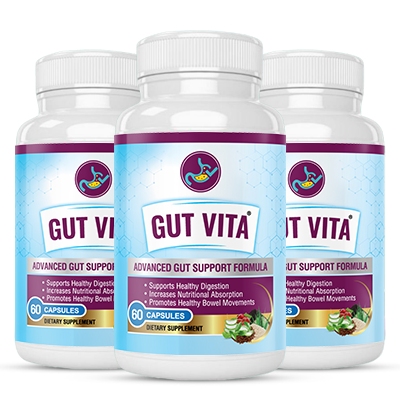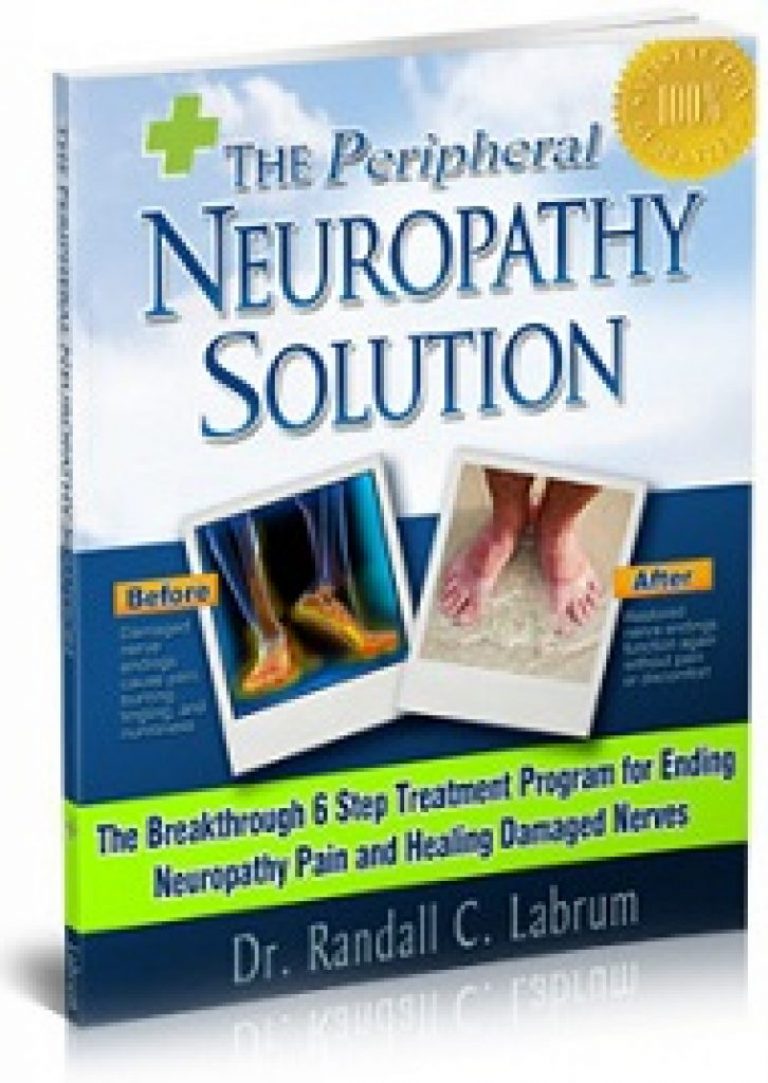3 Benefits of Herbal Medicine, Medicinal Herbs and More!
People begin to pay more attention to herbal medicine or natural herbal medicine. After years of excessive medication, facing resistant bacteria in the microbiome and treating the disease instead of the root of the problem. Millions of dollars have recently been invested in the search for promising medicinal herbs. These significant investments in research in traditional herbal medicine are still relatively modest compared to the pharmaceutical industry in general, but show that researchers are beginning to move away from the development of conventional medicines and seek more alternative and natural forms of treatment.
https://www.youtube.com/watch?v=NBBR_4ZnqtU
Natural plant products have been used throughout the history of mankind for various purposes. In fact, written records of the use of herbal medicine date back more than 5,000 years, and for much of history, herbal medicine was the only medicine. Herbs are less expensive and are a safer means of treatment than conventional medicines, which is why many people choose to return to this traditional idea of medicine.
What is Herbal Medicine?
Herbal medicine has its roots in all cultures of the world. Known systems of herbal medicine as medicine traditional Chinese and Ayurvedic medicine believe the central idea that there should be an emphasis on health rather than disease. Herbal medicine, or botanicals, are natural substances derived from plants that are used to treat diseases within local or regional healing practices. People in the United States have become more interested in herbal medicine because of the increase in the cost of prescription drugs and the recurring interest in natural or organic remedies. Whole herbs contain many ingredients that are used to treat diseases and relieve symptoms. Herbal medicine, also called botanical medicine, uses the seeds, berries, roots, leaves, bark or flowers of the plant for medicinal purposes. The biological properties of these plants have beneficial effects. Other factors are also responsible for its benefits, such as the type of environment in which the plant grew, the way it was harvested and how it was processed. The plant is sold raw or as extracts, where it is macerated with water, alcohol or other solvents to extract some of the chemicals. The resulting products contain dozens of chemicals, including fatty acids, sterols, alkaloids, flavonoids, glycosides, saponins and others.
Benefits of Herbal Medicine:
The Main Benefits of Herbal Medicine are:
1. It is More Affordable than Conventional Medicine:
It is no secret to anyone that modern medical science certainly has a fairly high price, and pharmaceuticals are no exception. One reason why herbal medicine is becoming more popular recently is because people simply cannot afford their medications month after month.
2. It is Easier to Obtain than Prescription Drugs:
Natural products are available in most herbal stores. This certainly facilitates obtaining herbal products and avoids additional costs of medical care. Herbs are classified as dietary supplements, so they can be produced, sold and marketed without going through the FDA. Buying from a reliable and reliable company that verifies the product is 100% pure.
3. Maintain Beneficial and Healing Properties:
Herbs are used for the treatment of chronic and acute conditions and various diseases, including major health concerns such as cardiovascular disease, prostate problems, depression, inflammation and weakened immune system.
The 10 Best Herbs Used in Herbal Medicine:
1. Raw Garlic:
Garlic contains vital nutrients, including flavonoids, oligosaccharides, selenium, allicin and high levels of sulfur. The consumption of cooked or raw garlic, adding it to food or taking a capsule, can help treat diabetes, fight inflammation, boost the immune system, regulate blood pressure, fight cardiovascular diseases, relieve allergies, fight infections fungal and viral and improve hair loss. Studies show an inverse correlation between garlic consumption and the progression of cardiovascular disease, the leading cause of death in the United States.
2. Ginger:
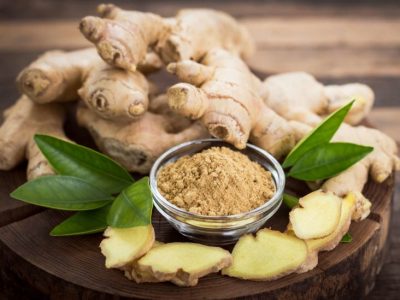 Ginger is the most widely used dietary seasoning in the world today. The therapeutic benefits of ginger come from gingerols, the oily root resin that acts as a highly potent antioxidant and anti-inflammatory agent. Gingerol, among other bioactive agents present in ginger, can relieve indigestion and nausea, stimulate immune and respiratory function, fight bacterial and fungal infections, treat stomach ulcers, reduce pain, improve diabetes, prevent malabsorption and even inhibit the growth of cancer cells. The potential against ginger cancer is well documented, and its functional ingredients such as gingerol, shogaol and paradoliums are valuable ingredients that can prevent various types of cancer. The researchers also found that ginger has anti-inflammatory and antioxidant properties to control the aging process. There are several ways to use ginger. It can be consumed raw, powdered or as a supplement, consumed in liquid form when making a tea or used topically as an oil.
Ginger is the most widely used dietary seasoning in the world today. The therapeutic benefits of ginger come from gingerols, the oily root resin that acts as a highly potent antioxidant and anti-inflammatory agent. Gingerol, among other bioactive agents present in ginger, can relieve indigestion and nausea, stimulate immune and respiratory function, fight bacterial and fungal infections, treat stomach ulcers, reduce pain, improve diabetes, prevent malabsorption and even inhibit the growth of cancer cells. The potential against ginger cancer is well documented, and its functional ingredients such as gingerol, shogaol and paradoliums are valuable ingredients that can prevent various types of cancer. The researchers also found that ginger has anti-inflammatory and antioxidant properties to control the aging process. There are several ways to use ginger. It can be consumed raw, powdered or as a supplement, consumed in liquid form when making a tea or used topically as an oil.
3. Turmeric:
Turmeric is a plant that has a long history of medicinal use, dating back almost 4,000 years.
“This powerful plant can be added to any recipe or it can be taken as a supplement”.
There are a range of benefits of turmeric, including its ability to slow and prevent blood clotting, fight depression, reduce inflammation, relieve arthritis pain, control diabetes, treat gastrointestinal problems, regulate cholesterol and combat cancer. Several studies indicate that turmeric has potent antioxidant, anti-inflammatory, antimutagenic, antimicrobial and anticancer properties. As an antioxidant, turmeric extracts can eliminate free radicals, increase antioxidant enzymes and inhibit lipid peroxidation.
4. Ginseng:
Ginseng is one of the most popular medicinal herbs in the world and has been used in Asia and North America for centuries. Native Americans used the root as a stimulant and a headache remedy, as well as a treatment for infertility, fever and indigestion, for example. The benefits of ginseng and its ability to improve mood and mental function, have the ability to slow the fall in mood, but also delayed the participants’ response to mental arithmetic. The 400-milligram dose improved calm and improved mental arithmetic for the duration of the eight-day treatment. Ginseng is also used to reduce stress, help with weight loss, treat sexual dysfunction, improve lung function, lower blood sugar levels, boost the immune system and reduce inflammation. Ginseng is available in dry, powdered form, tea, capsules and tablets.
5. Milk Thistle:
Milk thistle extracts have been used as traditional herbal medicine remedies for almost 2,000 years. Milk thistle contains high levels of lipophilic extracts from the seeds of the plant, which act as bioflavonoids that increase immunity and decrease oxidative stress. The herb is also used for its anti-inflammatory properties. It can help digestive function, increase bile production, improve skin health, combat the onset of aging, reduce cholesterol levels and help detoxify the body. A review of clinical trials that evaluated the safety and efficacy of milk thistle found that the herb has protective effects on certain types of cancer, and data shows that it can also be used in patients with liver disease, hepatitis C, HIV, diabetes and hypercholesterolemia. Milk thistle extracts, which are commonly sold in capsules, are also safe and well tolerated.
6. Matricaria:
For centuries, matricaria has been used for fever, headaches, stomach aches, toothaches, insect bites, infertility and problems with menstruation and childbirth during childbirth. It is said that the calming effect of pain comes from a biochemist called parthenolides, which fights the widening of blood vessels that occurs in migraines. The herb is also used to prevent dizziness, relieve allergies, reduce arthritis pain and prevent blood clots. Several impressive studies in humans show the positive effects of using matricaria to prevent and treat migraines. A systematic review compared the results of six studies. The researchers found that matricaria is effectively effective in preventing migraine headaches and does not raise any major safety concerns. It is available in capsule form, such as tablets and liquid extract. Supplements should be standardized to contain at least 0.2 percent parthenolide. The leaves of the matricaria can be used to make tea, but they have a bitter taste and can irritate the mouth.
7. St. John’s Wort:
St. John’s wort has been used as a medicinal herb for its antidepressant and anti-inflammatory properties for more than 2,000 years. It produces dozens of biologically active substances, but hypericin and hyperforin have the highest medical activity. The uses of St. John’s wort come from its antidepressant activity, its ability to relieve symptoms of premenstrual syndrome, improve mood during menopause, fight inflammation, relieve skin irritations and improve symptoms of obsessive disorder. Compulsive.
8. Ginkgo Biloba:
Ginkgo biloba, which is also known as maidenhair, is an ancient plant extract that has been used in traditional Chinese medicine to cure various health diseases for thousands of years. Current research shows that it is linked to improvements in cognitive function. Other benefits of ginkgo biloba include its ability to improve concentration and memory, reduce the risk of dementia and Alzheimer’s disease, combat anxiety and depression, help maintain vision and eye health, relieve ADHD symptoms, improve libido and fight fibromyalgia. Ginkgo biloba is available in capsules, tablets, liquid extract and in the form of a dried leaf. The standardized extract form contains 24 percent to 32 percent flavonoids and 6 percent to 12 percent terpenoids.
9. American Dwarf Palm:
Supplements for saw palmetto are some of the supplements most commonly consumed by men with prostate cancer and benign prostatic hyperplasia. This palm has been shown to reduce the production of the enzyme 5-alpha reductase, which converts the male hormone testosterone into dihydrotestosterone (DHT), a sex steroid and androgen hormone. While DHT is important because it plays a role in male development, it also contributes to many common health problems in men, such as loss of libido, enlarged prostate and hair loss. The effectiveness of dwarf palm to reduce symptoms associated with benign prostatic hyperplasia; It seemed to have an efficacy similar to that of drugs such as finasteride, but it was better tolerated and less expensive. In addition to its ability to alleviate the conditions triggered by DHT, it is also known that saw palmetto combats inflammation, stimulates immune function, treats respiratory conditions and promotes relaxation.
10. Aloe Vera:
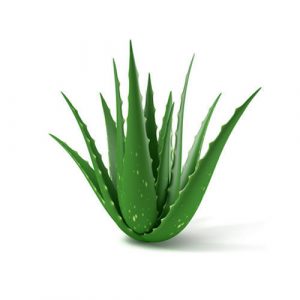 Studies have demonstrated the antiseptic, anti-inflammatory, antiviral and antifungal properties of aloe vera. The plant has also proven to be non-allergic and very good for developing the immune system. Other benefits of aloe vera include its ability to relieve skin rashes and irritations; treat burns and cold sores; moisturize skin, hair and scalp; provide antioxidants; and reduce inflammation. Aloe vera can be used topically or orally, and is available in most health food stores.
Studies have demonstrated the antiseptic, anti-inflammatory, antiviral and antifungal properties of aloe vera. The plant has also proven to be non-allergic and very good for developing the immune system. Other benefits of aloe vera include its ability to relieve skin rashes and irritations; treat burns and cold sores; moisturize skin, hair and scalp; provide antioxidants; and reduce inflammation. Aloe vera can be used topically or orally, and is available in most health food stores.
Precautions of Herbal Medicine:
Herbal supplements are classified as dietary supplements according to the US Dietary Supplement Education and Health Act. UU., Which means they are not proven to prove they are safe and effective, unlike prescription drugs. For this reason, some manufacturers may get away with the sale of herbal products that are not completely pure. When buying herbs for use in medications, be sure to buy 100 pure grade products from a reputable company. This ensures that you get the highest quality product that is not weakened with less expensive additives and is not grown with pesticides or contaminated with heavy metals. Herbal medicine can also cause allergic reactions or interact with conventional medications, so you should consult your health care provider before beginning any herbal treatment. Herbalists, naturopathic doctors, pharmacists, doctors and practitioners of traditional Chinese medicine can provide you with information about herbal medicine and help you choose which herb is best for treating your health problems. Be sure to do your own research on the herb you use and check for possible side effects and the proper dose.
Final Thoughts on Herbal Medicine:
- The products of natural planets have been used throughout the history of mankind for various purposes. In fact, written records of the use of herbal medicine date back more than 5,000 years.
- Herbal medicine, or botanicals, are natural substances derived from plants that are used to treat diseases within local or regional healing practices.
- Today, herbalism is observed for focusing on general well-being and prevention rather than treating a disease or illness once it arises.
- Herbal medicine is more cost effective than modern medicine, it is easier to obtain and has several health benefits that are comparable to modern pharmaceuticals.
- Some of the best known and used herbs are garlic, ginger, turmeric, saw palmetto, St. John’s wort and aloe vera.
- While research suggests that herbal products have fewer adverse side effects than conventional medications, it is important that consumers choose pure, high quality products. If you plan to take herbal products for a prolonged period, consult an herbalist or health care provider for guidance.

